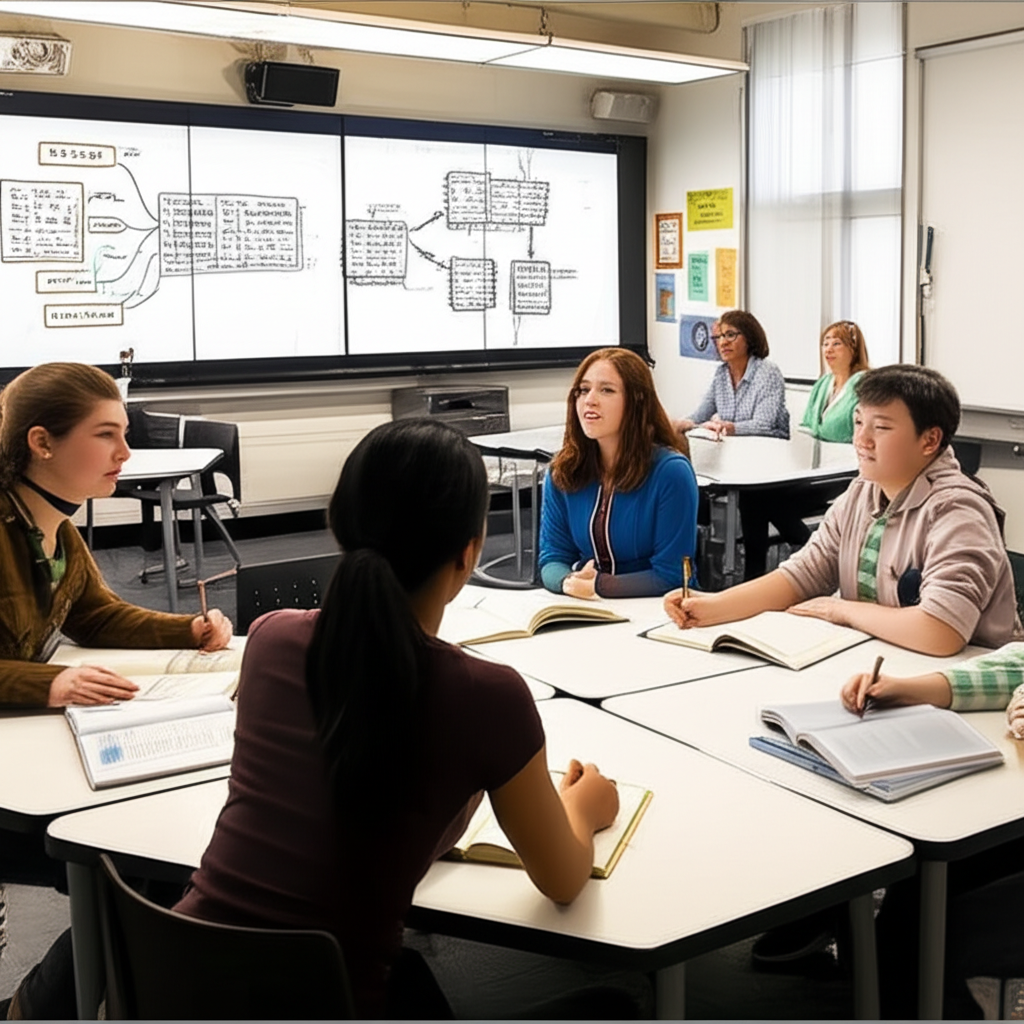The Critical Thinking Crisis
Recent assessments reveal concerning gaps in college students' critical thinking abilities, with many graduates struggling to analyze complex information, evaluate sources, and construct logical arguments—skills essential for both professional success and democratic participation.
Alarming Statistics
The Collegiate Learning Assessment found that 45% of college students showed no improvement in critical thinking skills during their first two years of college, and 36% showed no improvement over four years.
Defining Critical Thinking
Critical thinking encompasses a complex set of cognitive skills that enable individuals to analyze information objectively, evaluate evidence, and form reasoned judgments.
Core Critical Thinking Skills
- **Analysis:** Breaking down complex information into component parts
- **Evaluation:** Assessing the credibility and relevance of sources and evidence
- **Inference:** Drawing logical conclusions from available information
- **Interpretation:** Understanding meaning and significance of data and arguments
- **Explanation:** Articulating reasoning and evidence clearly
- **Self-regulation:** Monitoring and correcting one's own thinking processes
"Critical thinking is not just an academic skill—it's a life skill. In an era of information overload and deliberate misinformation, the ability to think critically is essential for informed citizenship."
— Dr. Richard Paul, Foundation for Critical Thinking
Why Critical Thinking Matters Now
Several contemporary challenges make critical thinking skills more important than ever for college graduates entering the workforce and society.
Contemporary Challenges Requiring Critical Thinking
| Challenge | Critical Thinking Application | Real-World Impact |
|---|---|---|
| Information overload | Source evaluation and fact-checking | Informed decision-making |
| Fake news and misinformation | Evidence assessment and verification | Democratic participation |
| Complex global problems | Systems thinking and analysis | Effective problem-solving |
| Rapid technological change | Adaptability and learning | Career resilience |
| Diverse perspectives | Perspective-taking and empathy | Collaboration and leadership |
Critical thinking applications in modern contexts
Current State in Higher Education
While most universities claim to prioritize critical thinking, research suggests that traditional teaching methods often fail to develop these skills effectively.
Teaching Challenge
Studies show that lecture-based courses, which still dominate many universities, are less effective at developing critical thinking skills compared to active learning approaches.
Effective Teaching Strategies
Research has identified specific pedagogical approaches that successfully develop critical thinking skills in college students.
Evidence-Based Teaching Methods
- **Socratic questioning:** Guided inquiry that challenges assumptions
- **Case-based learning:** Real-world scenarios requiring analysis and judgment
- **Debate and discussion:** Structured argumentation and perspective-taking
- **Problem-based learning:** Complex challenges requiring systematic thinking
- **Reflective writing:** Metacognitive exercises that examine thinking processes
- **Peer review:** Collaborative evaluation and feedback processes
Successful Program Examples
Several universities have implemented innovative programs that successfully develop critical thinking skills across disciplines.
Innovative Critical Thinking Programs
| University | Program | Key Features | Measured Outcomes |
|---|---|---|---|
| University of Chicago | Core Curriculum | Great Books discussions, Socratic method | 25% improvement in reasoning |
| Reed College | Humanities 110 | Collaborative inquiry, intensive writing | 30% gain in analytical skills |
| St. John's College | Great Books Program | Seminar-based learning, no lectures | Highest critical thinking scores |
| Alverno College | Ability-Based Curriculum | Explicit skill development, assessment | Significant skill improvements |
Programs with demonstrated success in developing critical thinking
Assessment Challenges
Measuring critical thinking skills presents significant challenges, as these abilities are complex and context-dependent.
Assessment Approaches
- **Standardized tests:** CLA+, Watson-Glaser, California Critical Thinking Skills Test
- **Performance assessments:** Real-world tasks requiring critical analysis
- **Portfolio evaluation:** Collection of work demonstrating skill development
- **Rubric-based assessment:** Detailed criteria for evaluating thinking quality
- **Self-assessment tools:** Student reflection on their own thinking processes
Barriers to Implementation
Despite widespread recognition of critical thinking's importance, several obstacles prevent effective implementation in higher education.
Implementation Barriers
Faculty often lack training in critical thinking pedagogy, and institutional pressures for content coverage can conflict with the time needed for skill development.
The Role of Technology
Digital tools and platforms offer new opportunities for developing and assessing critical thinking skills, though they also present new challenges.
Technology Applications
- **Simulation software:** Complex scenarios for analysis and decision-making
- **Online discussion platforms:** Structured debates and collaborative reasoning
- **AI-powered tutoring:** Personalized feedback on reasoning processes
- **Digital portfolios:** Documentation of skill development over time
- **Virtual reality:** Immersive experiences requiring critical analysis
Future Directions
As the importance of critical thinking becomes increasingly apparent, universities are exploring new approaches to embed these skills throughout the curriculum.
"The future belongs to those who can think critically about complex problems. Universities must make this a priority, not just an aspiration."
— Dr. Linda Elder, Foundation for Critical Thinking
